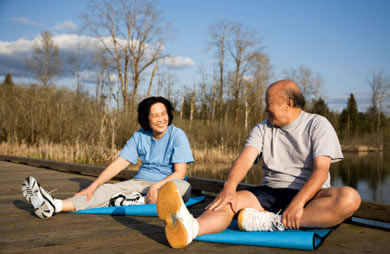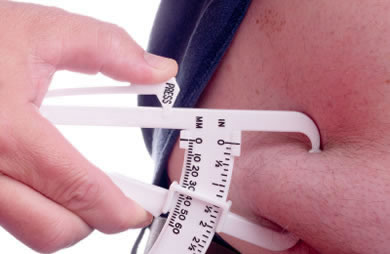|
What's HOT In a previous blog entry, I mentioned some research that showed how keeping your mind active with reading, puzzles, games, and other such activities can help reduce the risk of Alzheimer's disease and dementia, and slow down the general cognitive decline associated with aging. Now, there's some new evidence indicating that web-surfing may be even more beneficial than these other activities. Find out how you can help yourself by surfing the web in the right way. What's NOT It's been known for a long time that constant bombardment with media images of sexualized women with "perfect" bodies can be bad for the body image and self-esteem of women--especially young women. Now some new research shows these same images can have very similar effects on men. Find out why you may want to think twice before you reach for the latest issue of Maxim or Men's Health. Surfing the net beats simple reading, according to the study linked above, because the process of actively defining your objectives and searching out the most relevant resources engages more different parts of your brain. This not only helps maintain more brain functions as you age, but also increases the sense of achievement and self-efficacy that surfers derive from their efforts. Viewing the sexy female models in men's magazines, on the other hand, may actually increase men's sense of inadequacy. Men who check out the sexy female models in so-called lad magazines such as Maxim, Stuff, and Men's Health have more body-image problems than their peers, according to a new study by the Department of Communications at the University of Missouri, Columbia. The results closely parallel the results seen in women who feel worse about their bodies after viewing the models in magazines like Cosmopolitan or Glamour--except that the men aren't comparing themselves to the male models, they're reacting to the female models. . The researchers say that by looking at idealized, sexualized women, guys feel inadequate because they think they need to measure up on the attractiveness scale to snag such a mate. "Men make the inference that in order to be sexual and romantic with women of the similar caliber they see in Maxim magazine, they also need to be attractive," said lead researcher Jennifer Aubrey. This inference might be wrong--some research suggests women go for relatively less-attractive guys--but that doesn't seem to change how men react to these magazines. That may be because the uber-male perspective in these magazines sends the message that men should be having lots of sex. "So you have that in your head while you're looking at these magazines. If you want to get as much sex as possible with these types of women, then what's left but the feeling you need to look a certain way in order to do that," said Aubrey. The researchers had 77 male university students answer questions about body self-consciousness and anxiety about appearance at the beginning of the study and one year later. They found that reading such magazines was related to more body self-consciousness. Statistics ruled out the possibility that guys who have body-image problems specifically sought out lad magazines. Aubrey and her colleagues also asked a group of 100 male undergraduate students to view one of these three types of images: layouts from issues of FHM, Maxim and Stuff showing a woman dressed in either lingerie or a bikini, along with a description of their appearances; layouts about male fashion showing well-dressed, fit guys; or magazine layouts that were "appearance-neutral" and featured topics such as technology and film trivia. The men who looked at the photo spreads of women reported more body self-consciousness than the other two groups. "Even more surprising was that the male fashion group reported the least amount of body self-consciousness among the three groups," Aubrey said. (This research is reported in the current issue of the journal Human Communication Research.) For those of you wondering what studies about web-surfing and reading magazines like Maxim have to do with each other and why they're in the same blog... I think there might be a basic fact of life that explains the results of both studies: If you want to do the most you can for your own cognitive and emotional health, you need to take an active, creative role in defining your own goals on your own terms, and in searching out the resources and tools you need to achieve those goals. It's taking the initiative yourself, rather than passively responding to what's presented to you, that produces the maximum benefits for both your brain and your feelings about yourself. This is very consistent with what psychologists know about self-efficacy (the sense that you have what it takes to achieve your goals), and its role in mental health. Whether it's deciding what kind of "look" is right for you, or what hobbies and interests you want to spend your time on, figuring it out for yourself will do you more good than following the crowd. So, if you haven't done this already, here's a suggestion. Make SP's web-search page your home page, and set it up with links to your favorite internet resources. Make it a point to spend a little time every day using the search engine to explore new ideas and areas of interest, and find new websites of interest to you. It might make you feel better, especially if you take the time for this away from looking through the kinds of magazines mentioned above. What do you think about all this? Does reading those men's fashion magazines or other similar magazines make you feel worse about your body and your self? Have you experienced any positive effects on your self-esteem and self-efficacy from searching the web for new ideas and interests? What are some of your favorite websites for expanding your horizons? |
Popular Entries
More From SparkPeople
|

.png)










.jpg)


